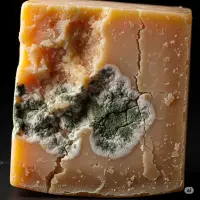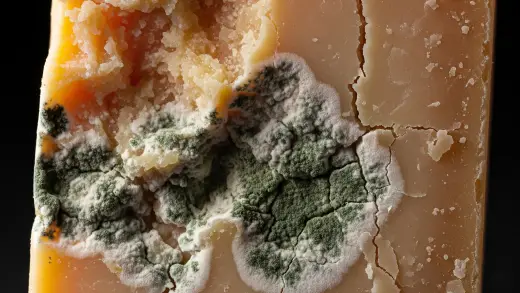Yes, you can eat Brie while pregnant, but there’s a crucial catch. Only Brie made with pasteurized milk is safe. Double-check the label—it’s the key to enjoying this creamy cheese worry-free. Unpasteurized Brie is a no-go for expectant moms.
Pregnancy is an amazing journey, but it can also feel like a long list of “don’ts,” especially when it comes to your favorite foods. You might be wondering, “Can I still enjoy my brie?” This post is here to help you understand the safety of eating brie cheese while you’re pregnant.
We’ll explore what you need to know to make the best choices for you and your growing baby.
The main point? Knowing the facts about brie and pregnancy will empower you to enjoy your food safely. While brie is delicious, some types can pose a risk during pregnancy.
This is because unpasteurized brie can sometimes contain harmful bacteria called Listeria. Listeria infections can be really serious for you and your baby, potentially leading to complications.
So, let’s dive in and learn how you can enjoy cheese safely during this special time!

What is brie cheese?
Brie is a soft, creamy cheese with a bloomy, white rind – that’s the fuzzy, edible part on the outside! Think of it as the fancy cousin of Camembert. It’s traditionally made from cow’s milk, and the process involves adding special cultures and enzymes that give it its distinctive flavor and texture.
The milk is curdled, then the whey (the watery part) is drained, and the cheese is molded and aged. During aging, the bloomy rind develops, and the inside becomes wonderfully soft and runny.
Now, brie comes in a few different forms. You’ll most often find it as a small, round wheel. Sometimes it’s sold in larger wedges or even as a “brie log.”
The biggest difference between bries comes down to whether they’re pasteurized or unpasteurized. Pasteurization is like a heat treatment that kills harmful bacteria.
So, pasteurized brie is heated to make it safe. Unpasteurized brie, on the other hand, isn’t heated, which means it has a richer, more complex flavor, but it also carries a higher risk of containing Listeria bacteria. This is the key difference you need to know about when you’re pregnant.
Is it safe to eat brie cheese during pregnancy?
Let’s talk brie and pregnancy – a question many moms-to-be have! Here’s the lowdown on staying safe while still enjoying some delicious cheese:
The Listeria Risk
The biggest worry with brie during pregnancy is Listeria. This bacteria can cause serious problems, especially for pregnant women and their babies. Listeria infections can sadly lead to miscarriage, premature birth, stillbirth, or health issues for the newborn.
Pasteurization is Your Friend
The key to safe brie is pasteurization. This process is like a heat treatment that kills harmful bacteria, including Listeria. Pasteurized brie is generally considered safe for pregnant women. Always, always check the label to make sure it says “pasteurized.” If it doesn’t, play it safe and skip it.

Storage Counts
Even pasteurized brie can get contaminated if it’s not stored correctly. Make sure the brie you buy is refrigerated and hasn’t gone past its “use by” or “best by” date. Once you open it, keep it in the fridge and eat it within a few days.
So, What Should You Do?
- Go for pasteurized: This is the safest bet. Read those labels carefully!
- Skip unpasteurized brie: If it doesn’t say “pasteurized,” assume it’s not and avoid it.
- When unsure, don’t eat it: If you’re at all unsure about whether a brie is pasteurized or how it’s been stored, it’s better to skip it during pregnancy.
Basically, pasteurized brie is usually okay, but unpasteurized brie is a no-go. Your health and your baby’s health are the most important thing. If you have any questions, definitely chat with your doctor or healthcare provider. They can give you the best advice for your specific situation.
Tips for eating brie cheese safely during pregnancy
Okay, so you’ve checked, double-checked, and you’re sure the brie you’re eyeing is pasteurized. Great! Here are a few extra tips to keep in mind for enjoying brie safely during pregnancy:
Choose pasteurized brie cheese
Seriously, this is the most important thing. Only eat brie that is clearly labeled “pasteurized.” Don’t take any chances.
Freshness Matters
Make sure the brie is fresh. Check the “use by” or “best by” date. Avoid anything that looks or smells off. Fresh cheese is less likely to harbor harmful bacteria.

Do Proper Storage
Keep your brie refrigerated at all times. Don’t leave it out at room temperature for too long. After you open it, wrap it tightly and put it back in the fridge.
Moderation is Your Friend
Even pasteurized brie should be enjoyed in moderation. You don’t need to eat the whole wheel! A small serving is a good way to satisfy your craving without overdoing it.
Listen to Your Gut (Literally)
If you’re at all uneasy about a particular piece of brie, trust your instincts. It’s always better to be safe than sorry.
Talk to Your Doctor
If you have any concerns or questions about eating brie during pregnancy, don’t hesitate to talk to your doctor or healthcare provider. They’re there to help you make informed choices and keep you and your baby healthy.
Other foods to avoid during pregnancy
While we’re on the topic of food safety during pregnancy, it’s a good idea to chat about a few other things to watch out for. Just like with brie, some foods can pose risks to you and your growing baby. Here are some of the main culprits:
Unpasteurized Dairy
Just like unpasteurized brie, other unpasteurized dairy products like some soft cheeses (feta, goat cheese, etc.) and raw milk can also harbor Listeria and other harmful bacteria. Always choose pasteurized dairy.
Raw or Undercooked Meats
Raw or undercooked meats like steak tartare, sushi (with raw fish), and deli meats can carry bacteria like E. coli and Salmonella. These can cause serious infections. Make sure your meat is cooked thoroughly.
High-Mercury Fish
Some fish, like swordfish, shark, king mackerel, and tilefish, can contain high levels of mercury. Mercury can be harmful to a baby’s developing nervous system. It’s best to avoid these fish altogether during pregnancy.
Lower-mercury options like salmon, shrimp, and canned light tuna are generally considered safe in moderation, but check with your doctor for specific recommendations.
Raw Eggs
Raw eggs, like those found in homemade mayonnaise or some sauces, can sometimes contain Salmonella. Make sure eggs are cooked thoroughly.
Unwashed Fruits and Vegetables
Always wash fruits and vegetables thoroughly before eating them to remove any dirt or pesticides.
It’s a lot to remember, but keeping these guidelines in mind can help you have a healthy and happy pregnancy. If you ever have any questions about specific foods, don’t hesitate to ask your doctor or healthcare provider. They can give you the most accurate and personalized advice.
FAQs
Who shouldn’t eat brie cheese?
If you’re pregnant, have a weakened immune system (like from HIV/AIDS, cancer treatment, or an organ transplant), or are over 65, you should generally avoid brie, especially unpasteurized, because of the Listeria risk. Children should also avoid unpasteurized brie.
What cheese cannot be eaten during pregnancy?
During pregnancy, you should avoid unpasteurized soft cheeses like brie, Camembert, feta, goat cheese, and Roquefort. These cheeses may contain Listeria bacteria, which can be harmful to your baby. Always choose cheeses labeled “pasteurized.”
Can you eat Brie when trying to get pregnant?
If you’re trying to get pregnant, the same food safety rules generally apply. It’s still a good idea to avoid unpasteurized cheeses like brie, Camembert, feta, goat cheese, and Roquefort due to the risk of Listeria. While the risk to you might be lower than during pregnancy, a Listeria infection could still cause issues. Sticking to pasteurized cheeses is the safest bet.
What food to avoid in early pregnancy?
During IVF, you should follow the same food safety guidelines as when trying to conceive or when you’re pregnant. Avoid unpasteurized soft cheeses like brie because of the Listeria risk. Choose pasteurized cheeses instead. Talk to your doctor or fertility specialist if you have any specific dietary questions.
Can I have brie during IVF?
No, you should not have brie during IVF unless it is clearly labeled as pasteurized. Unpasteurized brie carries a risk of Listeria infection, which is dangerous during any stage of trying to conceive, including IVF.
Conclusion
This post is all about helping you understand if you can eat brie while pregnant. We’ve covered the important things you need to know to make good choices for you and your baby.
Remember, pasteurized brie is usually okay, but unpasteurized brie is a no-go. Always double-check the label to be absolutely sure it says “pasteurized.” Freshness and how you store the cheese matter too.
If you’re ever unsure, it’s best to skip it. And if you have any questions at all about what you can eat while pregnant, talk to your doctor. They’re there to help you!















